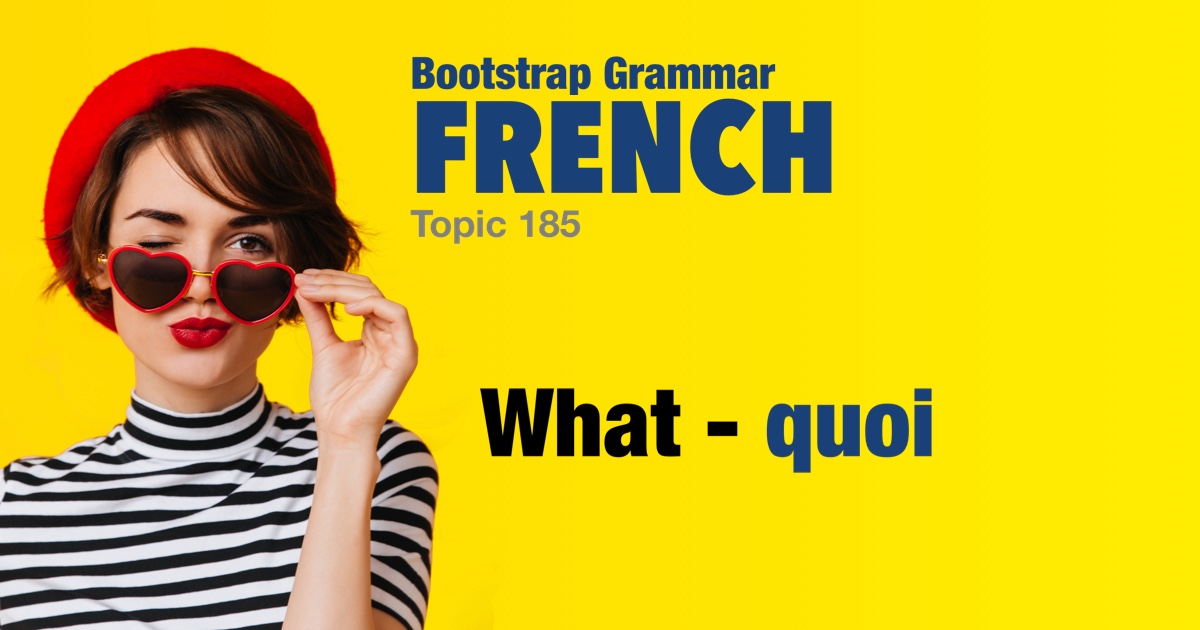French grammar - What - quoi |
|||
|
|||
We have seen that the indefinite relative pronoun ce dont references the object of a verb that takes the preposition de. When a verb takes a preposition other than de then quoi is used as the indefinite relative pronoun. -- Used in this way the verb's preposition is placed before quoi. Having said that, colloquially quoi can simply mean 'what'. |
| Examples: | |
|
Je sais ce à quoi tu penses.
I know what you (familiar) are thinking.
|
|
|
À quoi penses-tu ?
What are you (familiar) thinking about?
|
|
|
Nous ne savons jamais à quoi il pense.
We never know what he is thinking.
|
|
|
Maintenant, vous savez dans quoi j'étais coincé.
Now you (formal) know what I was stuck in.
|
|
|
J'ai trouvé avec quoi laver le chien.
I found something to wash the dog with.
|
|
|
Avec quoi écrit-il ?
What does he write with?
|
|
|
Ce à quoi je m'attends - votre invitation.
That is what I am expecting - your (formal) invitation.
|
|
|
Je me demandais derrière quoi il se cachait.
I was wondering what he was hiding behind.
|
|
|
Il n'y a pas de quoi.
You are welcome. *OR* There is nothing (to mention).
|
|
|
Pas de quoi.
Welcome.
|
|
|
Quoi ?
What?
|
|
|
Pourquoi ?
Why?
|
|
|
Tu fais quoi ce weekend ?
What are you (familiar) doing this weekend?
|
|
|
Quoi de neuf ?
What's new? |
|
 |
|


 The verb is
The verb is 